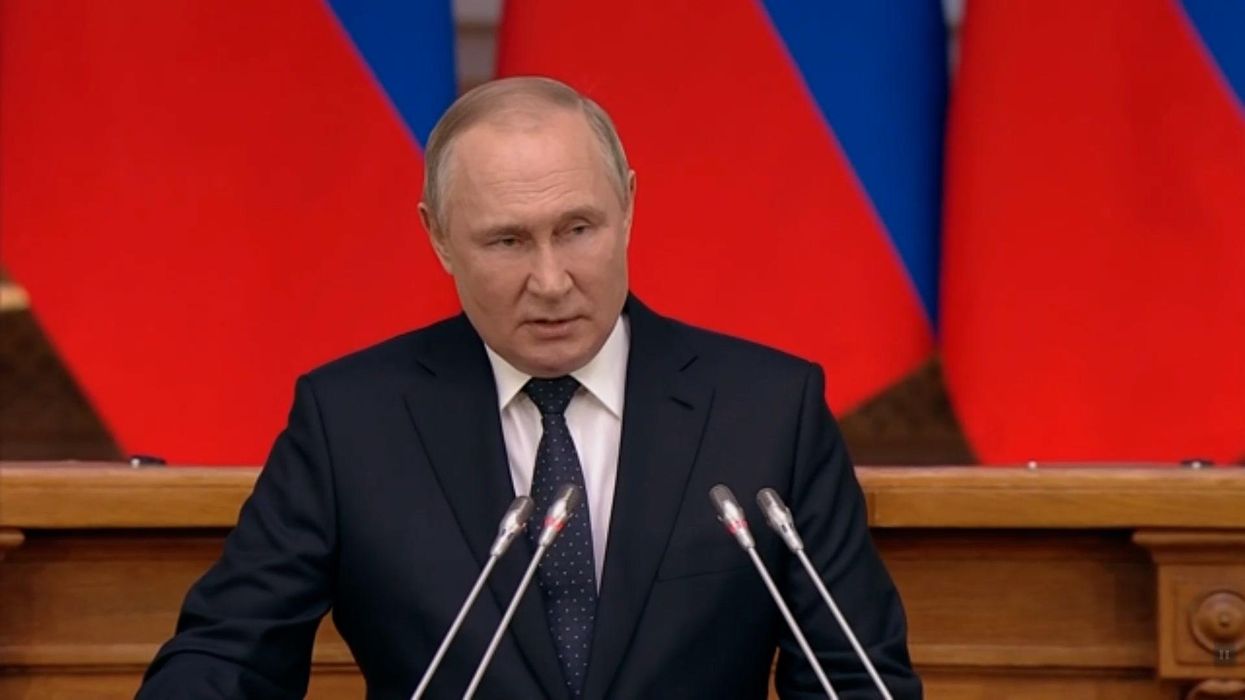Becca Monaghan
Aug 04, 2022
Putin promises 'immediate' reaction if Russia threatened
Independent TV
As of 2019, there were 15,000 nuclear weapons on planet Earth. But, what would happen in the unlikely event of a nuclear blast?
The impact of a single nuclear bomb is difficult to determine because so many factors have to be considered: the time of day, the weather, the exact location and whether it exploded on land or in the air. Clothing is also a surprising factor as white clothes can reflect some of the energy of a blast, while black clothing can absorb it.
The light from a nuclear explosion can cause flash blindness – a temporary form of vision loss that can last a few minutes.
According to AsapSCIENCE's video, a one-megaton bomb, 80 times larger than the bomb detonated over Hiroshima in 1945, can affect people up to 13 miles away. They would experience flash blindness on a clear day, whereas those around 52.8 miles away would be temporarily blinded on a clear night, says Science Alert.
Heat is the prime concern for those closer to a nuclear blast, with people up to 6.8 miles away suffering first-degree burns and third-degree burns hitting anyone up to 5 miles away.
Sign up to our free Indy100 weekly newsletter
You've got to consider the immense thermal radiation too, which travels at the speed of light. Even if you were further away from the blast, the sudden change in air pressure can crush objects and destroy buildings.
An example 2019 study concluded that a nuclear war between the United States and Russia would send Earth into a nuclear winter within days due to the levels of smoke and soot released into the atmosphere.
Even if a human could handle that amount of air pressure, falling buildings could very well be a cause of death.
So, where could people go to survive a nuclear conflict?
You'd essentially want to avoid countries with access to nuclear weapons and those involved in nuclear agreements. According to the Federation of American Scientists, Russia and the United States own more than 90 per cent of the nuclear warheads in the world.
This Statistagraph suggests the Southern hemisphere is the safest option for this strategy:

Despite the understandable fears and speculations surrounding a nuclear war, defence secretary Ben Wallace said Putin's phrasing was a "battle of rhetoric".
During interviews in March, he told Sky News he "was not going to speculate" on what Putin might do in the future. He later told BBC Breakfast Putin wanted to remind people he had a deterrent: "We don't see or recognise in the sort of phrase or the status he described as anything that is a change to what they have currently as their nuclear posture.
"This is predominantly about Putin putting it on the table just to remind people, remind the world, that he has a deterrent.
"We will not do anything to escalate in that area, we will not do anything to feed any miscalculation, we take it very, very seriously.
"But at the moment this is a battle of rhetoric that President Putin is deploying, and we just have to make sure we manage it properly."
Have your say in our news democracy. Click the upvote icon at the top of the page to help raise this article through the indy100 rankings.
Top 100
The Conversation (0)














